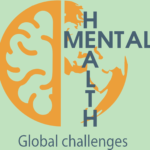Mental healthcare services support: the social role of medical educator involved in the destigmatization process to generate inclusion.
DOI:
https://doi.org/10.56508/mhgcj.v6i1.163Keywords:
Medical Education, Destigmatisation, mental health, Ethics, IncludabilityAbstract
Introduction: The stigmatization of mental healthcare services and users is a barrier to the achievement of mental wellness present on a global level. 800000 suicides are estimated each year, 25 suicide attempts for every suicide (ratio of 25:1), and in 2017 estimated a prevalence > 10% of people suffering from mental disorder or substance abuse (global data). The stigmatization is a multifactorial phenomenon and process that involves different factors, which overall cause health, social and economic damage. Slowing down and reducing access to mental health and well-being pathways due to their influence in the community, also affect social relationships and self-determination.
Purpose: to identify and describe the process, causes, and factors of stigmatization. Propose destigmatization activities led by the medical educator.
Methodology: The manuscript develops a proposal focused on the destigmatization process of mental health/wellbeing services and users, through the guidance of the medical educator as a figure of connection between different professions (interdisciplinary and multidisciplinary), and between different stakeholders.
Conclusion: each identifies factor described, can be involved in the destigmatization process to generate inclusion, through different social interventions led by the role of the medical educator, with the aim of supporting access to patient support processes and quality of life in communities, generating inclusion through destigmatization
References
Abrams, D. (2010). Equality and Human Rights Commission Research report 56 Processes of prejudice: Theory, evidence and intervention. https://www.equalityhumanrights.com/sites/default/files/research-report-56-processes-of-prejudice-theory-evidence-and-intervention.pdf
Ahmedani, B. (2011). Mental Health Stigma: Society, Individuals, and the Profession. https://www.ncbi.nlm.nih.gov/pmc/articles/PMC3248273/pdf/nihms342711.pdf
Andersen, M. M., Varga, S., & Folker, A. P. (2022). On the definition of stigma. Journal of Evaluation in Clinical Practice. https://doi.org/10.1111/jep.13684 DOI: https://doi.org/10.1111/jep.13684
Bartle, E., & Thistlethwaite, J. (2014). Becoming a medical educator: motivation, socialisation and navigation. BMC Medical Education, 14(1). https://doi.org/10.1186/1472-6920-14-110 DOI: https://doi.org/10.1186/1472-6920-14-110
Bhugra, D. (2016). Social discrimination and social justice. International Review of Psychiatry, 28(4), 336–341. https://doi.org/10.1080/09540261.2016.1210359 DOI: https://doi.org/10.1080/09540261.2016.1210359
Bodeker, G., Pecorelli, S., Choy, L., Guerra, R., & Kariippanon, K. (2020). Well-Being and Mental Wellness. Oxford Research Encyclopedia of Global Public Health. https://doi.org/10.1093/acrefore/9780190632366.013.162 DOI: https://doi.org/10.1093/acrefore/9780190632366.013.162
Bracke, P., Delaruelle, K., & Verhaeghe, M. (2019). Dominant Cultural and Personal Stigma Beliefs and the Utilization of Mental Health Services: A Cross-National Comparison. Frontiers in Sociology, 4. https://doi.org/10.3389/fsoc.2019.00040 DOI: https://doi.org/10.3389/fsoc.2019.00040
Brohan, E., Slade, M., Clement, S., & Thornicroft, G. (2010). Experiences of mental illness stigma, prejudice and discrimination: a review of measures. BMC Health Services Research, 10(1). https://doi.org/10.1186/1472-6963-10-80 DOI: https://doi.org/10.1186/1472-6963-10-80
Casares, D. R. (2020). Embracing the Podcast Era: Trends, Opportunities, & Implications for Counselors. Journal of Creativity in Mental Health, 1–16. https://doi.org/10.1080/15401383.2020.1816865 DOI: https://doi.org/10.1080/15401383.2020.1816865
Chen, X. (2021, December 24). The Effect of Media Representations and Stigma on Public Perception of Mental Disorders from Late 20th to Early 21st Century. Www.atlantis-Press.com; Atlantis Press. https://doi.org/10.2991/assehr.k.211220.106 DOI: https://doi.org/10.2991/assehr.k.211220.106
Corrigan, P. W., & Rao, D. (2012). On the Self-Stigma of Mental Illness: Stages, Disclosure, and Strategies for Change. The Canadian Journal of Psychiatry, 57(8), 464–469. https://doi.org/10.1177/070674371205700804
Corrigan, P. W., & Rao, D. (2012). On the Self-Stigma of Mental Illness: Stages, Disclosure, and Strategies for Change. The Canadian Journal of Psychiatry, 57(8), 464–469. https://doi.org/10.1177/070674371205700804 DOI: https://doi.org/10.1177/070674371205700804
Diener, E., Oishi, S., & Lucas, R. E. (2003). Personality, culture, and subjective well-being: emotional and cognitive evaluations of life. Annual Review of Psychology, 54(1), 403–425. https://doi.org/10.1146/annurev.psych.54.101601.145056 DOI: https://doi.org/10.1146/annurev.psych.54.101601.145056
Duffy, A., Saunders, K. E. A., Malhi, G. S., Patten, S., Cipriani, A., McNevin, S. H., MacDonald, E., & Geddes, J. (2019). Mental health care for university students: a way forward? The Lancet Psychiatry, 6(11), 885–887. https://doi.org/10.1016/s2215-0366(19)30275-5 DOI: https://doi.org/10.1016/S2215-0366(19)30275-5
GBD 2019 Mental Disorders Collaborators. (2022). Global, regional, and national burden of 12 mental disorders in 204 countries and territories, 1990–2019: A systematic analysis for the Global Burden of Disease Study 2019. The Lancet Psychiatry, 9(2), 137–150. https://doi.org/10.1016/s2215-0366(21)00395-3 DOI: https://doi.org/10.1016/S2215-0366(21)00395-3
Goepfert, N. C., Conrad von Heydendorff, S., Dreßing, H., & Bailer, J. (2019). Effects of stigmatizing media coverage on stigma measures, self-esteem, and affectivity in persons with depression – an experimental controlled trial. BMC Psychiatry, 19(1). https://doi.org/10.1186/s12888-019-2123-6 DOI: https://doi.org/10.1186/s12888-019-2123-6
Halme, M., Rautava, P., Sillanmäki, L., Sumanen, M., Suominen, S., Vahtera, J., Virtanen, P., & Salo, P. (2022). Educational level and the use of mental health services, psychotropic medication and psychotherapy among adults with a history of physician diagnosed mental disorders. International Journal of Social Psychiatry, 002076402211110. https://doi.org/10.1177/00207640221111091 DOI: https://doi.org/10.1177/00207640221111091
Hampson, M. E., Watt, B. D., & Hicks, R. E. (2020). Impacts of stigma and discrimination in the workplace on people living with psychosis. BMC Psychiatry, 20(1). https://doi.org/10.1186/s12888-020-02614-z DOI: https://doi.org/10.1186/s12888-020-02614-z
Hean, S., Clark, J. M., Adams, K., & Humphris, D. (2006). Will opposites attract? Similarities and differences in students’ perceptions of the stereotype profiles of other health and social care professional groups. Journal of Interprofessional Care, 20(2), 162–181. https://doi.org/10.1080/13561820600646546 DOI: https://doi.org/10.1080/13561820600646546
Hermanns, M., & Haas, B. (2016). Student reflections of psychiatric/mental health: Using journals and creative expressions. Journal of Nursing Education and Practice, 6(8). https://doi.org/10.5430/jnep.v6n8p69 DOI: https://doi.org/10.5430/jnep.v6n8p69
Holder, S. M., Peterson, E. R., Stephens, R., & Crandall, L. A. (2018). Stigma in Mental Health at the Macro and Micro Levels: Implications for Mental Health Consumers and Professionals. Community Mental Health Journal, 55(3), 369–374. https://doi.org/10.1007/s10597-018-0308-y DOI: https://doi.org/10.1007/s10597-018-0308-y
Hwang, W., Myers, H., Abekim, J., & Ting, J. (2008). A conceptual paradigm for understanding culture’s impact on mental health: The cultural influences on mental health (CIMH) model. Clinical Psychology Review, 28(2), 211–227. https://doi.org/10.1016/j.cpr.2007.05.001 DOI: https://doi.org/10.1016/j.cpr.2007.05.001
Koschorke, M., Evans-Lacko, S., Sartorius, N., & Thornicroft, G. (2016). Stigma in Different Cultures. The Stigma of Mental Illness - End of the Story?, 67–82. https://doi.org/10.1007/978-3-319-27839-1_4 DOI: https://doi.org/10.1007/978-3-319-27839-1_4
Lannin, D. G., & Bible, J. (2022). Self-Stigma of Seeking Help. The Cambridge Handbook of Stigma and Mental Health, 111–142. https://doi.org/10.1017/9781108920995.009 DOI: https://doi.org/10.1017/9781108920995.009
Mcleod, S. (2018). Maslow’s Hierarchy of Needs. In Simply Psychology (pp. 1–16). Simply Psychology. https://canadacollege.edu/dreamers/docs/Maslows-Hierarchy-of-Needs.pdf
Naslund, J. A., Bondre, A., Torous, J., & Aschbrenner, K. A. (2020). Social Media and Mental Health: Benefits, Risks, and Opportunities for Research and Practice. Journal of Technology in Behavioral Science, 5(3), 245–257. https://link.springer.com/article/10.1007/s41347-020-00134-x DOI: https://doi.org/10.1007/s41347-020-00134-x
OECD. (2019). Education attainment - Adult education level - TheOECD. https://data.oecd.org/eduatt/adult-education-level.htm#indicator-chart
OECD. (2022). Earnings and wages - Average wages - OECD Data. TheOECD. https://data.oecd.org/earnwage/average-wages.htm
OECD. (2022). Employment - Employment rate - OECD Data. TheOECD. https://data.oecd.org/emp/employment-rate.htm
OECD. (2022). Health status - Suicide rates - OECD Data. TheOECD. https://data.oecd.org/healthstat/suicide-rates.htm
Ostic, D., Qalati, S. A., Barbosa, B., Shah, S. M. M., Galvan Vela, E., Herzallah, A. M., & Liu, F. (2021). Effects of Social Media Use on Psychological Well-Being: A Mediated Model. Frontiers in Psychology, 12. https://doi.org/10.3389/fpsyg.2021.678766 DOI: https://doi.org/10.3389/fpsyg.2021.678766
Pandita, R. (2017). Internet a change agent: An overview of internet penetration and growth across the world. International Journal of Information Dissemination and Technology, 7(2), 83. https://doi.org/10.5958/2249-5576.2017.00001.2 DOI: https://doi.org/10.5958/2249-5576.2017.00001.2
Parkinson, B. (2020). Patient and public involvement for mental health researchers. Mental Health Practice, 24(2), 22–26. https://doi.org/10.7748/mhp.2020.e1481 DOI: https://doi.org/10.7748/mhp.2020.e1481
Patel, V., Saxena, S., Lund, C., Thornicroft, G., Baingana, F., Bolton, P., Chisholm, D., Collins, P. Y., Cooper, J. L., Eaton, J., Herrman, H., Herzallah, M. M., Huang, Y., Jordans, M. J. D., Kleinman, A., Medina-Mora, M. E., Morgan, E., Niaz, U., Omigbodun, O., & Prince, M. (2018). The Lancet Commission on global mental health and sustainable development. The Lancet, 392(10157), 1553–1598. https://doi.org/10.1016/s0140-6736(18)31612-x DOI: https://doi.org/10.1016/S0140-6736(18)31612-X
Nochaiwong, S., Ruengorn, C., Thavorn, K., Hutton, B., Awiphan, R., Phosuya, C., Ruanta, Y., Wongpakaran, N., & Wongpakaran, T. (2021). Global prevalence of mental health issues among the general population during the coronavirus disease-2019 pandemic: a systematic review and meta-analysis. Scientific Reports, 11(1). https://doi.org/10.1038/s41598-021-89700-8 DOI: https://doi.org/10.1038/s41598-021-89700-8
Pedrelli, P., Nyer, M., Yeung, A., Zulauf, C., & Wilens, T. (2014). College Students: Mental Health Problems and Treatment Considerations. Academic Psychiatry, 39(5), 503–511. https://doi.org/10.1007/s40596-014-0205-9 DOI: https://doi.org/10.1007/s40596-014-0205-9
Pickering, M. (2015). Stereotyping and Stereotypes. The Wiley Blackwell Encyclopedia of Race, Ethnicity, and Nationalism, 1–2. https://doi.org/10.1002/9781118663202.wberen046 DOI: https://doi.org/10.1002/9781118663202.wberen046
Ritchie, H., Roser, M., & Dattani, S. (2018). Mental health. Our World in Data. https://ourworldindata.org/mental-health
Rüsch, N., Angermeyer, M. C., & Corrigan, P. W. (2005). Mental illness stigma: Concepts, consequences, and initiatives to reduce stigma. European Psychiatry, 20(8), 529–539. https://doi.org/10.1016/j.eurpsy.2005.04.004 DOI: https://doi.org/10.1016/j.eurpsy.2005.04.004
Samuel, A., & Konopasky, A. (2021). Creating supportive learning environments: The role of the medical educator. The Clinical Teacher. https://doi.org/10.1111/tct.13367 DOI: https://doi.org/10.1111/tct.13367
Scully, C. (2014). Mental health. Scully’s Medical Problems in Dentistry, 294–322. https://doi.org/10.1016/b978-0-7020-5401-3.00010-2 DOI: https://doi.org/10.1016/B978-0-7020-5401-3.00010-2
Smith, R. A., & Applegate, A. (2018). Mental health stigma and communication and their intersections with education. Communication Education, 67(3), 382–393. https://doi.org/10.1080/03634523.2018.1465988 DOI: https://doi.org/10.1080/03634523.2018.1465988
Søvold, L. E., Naslund, J. A., Kousoulis, A. A., Saxena, S., Qoronfleh, M. W., Grobler, C., & Münter, L. (2021). Prioritizing the Mental Health and Well-Being of Healthcare Workers: An Urgent Global Public Health Priority. Frontiers in Public Health, 9(1). https://doi.org/10.3389/fpubh.2021.67939 DOI: https://doi.org/10.3389/fpubh.2021.679397
Srivastava, K., Chaudhury, S., Bhat, P., & Mujawar, S. (2018). Media and mental health. Industrial Psychiatry Journal, 27(1), 1. https://doi.org/10.4103/ipj.ipj_73_18 DOI: https://doi.org/10.4103/ipj.ipj_73_18
Tambuyzer, E., Pieters, G., & Van Audenhove, C. (2011). Patient involvement in mental health care: one size does not fit all. Health Expectations, 17(1), 138–150. https://doi.org/10.1111/j.1369-7625.2011.00743.x DOI: https://doi.org/10.1111/j.1369-7625.2011.00743.x
The Lancet Global Health. (2020). Mental health matters. The Lancet Global Health, 8(11), e1352. https://doi.org/10.1016/s2214-109x(20)30432-0 DOI: https://doi.org/10.1016/S2214-109X(20)30432-0
Thornicroft, G., & Kassam, A. (2006). Public attitudes, stigma and discrimination against people with mental illness. Society and Psychosis, 179–197. https://doi.org/10.1017/cbo9780511544064.012 DOI: https://doi.org/10.1017/CBO9780511544064.012
Vahdat, S., Hamzehgardeshi, L., Hessam, S. and Hamzehgardeshi, Z. (2014). Patient Involvement in Health Care Decision Making: a Review. Iranian Red Crescent Medical Journal, [online] 16(1). doi:10.5812/ircmj.12454. DOI: https://doi.org/10.5812/ircmj.12454
VanderLind, R. (2017). Destigmatizing Mental Illness in College Students. Global Journal of Intellectual & Developmental Disabilities, 1(4). https://doi.org/10.19080/gjidd.2017.01.555567 DOI: https://doi.org/10.19080/GJIDD.2017.01.555567
Wainberg, M. L., Scorza, P., Shultz, J. M., Helpman, L., Mootz, J. J., Johnson, K. A., Neria, Y., Bradford, J.-M. E., Oquendo, M. A., & Arbuckle, M. R. (2017). Challenges and Opportunities in Global Mental Health: a Research-to-Practice Perspective. Current Psychiatry Reports, 19(5). https://doi.org/10.1007/s11920-017-0780-z DOI: https://doi.org/10.1007/s11920-017-0780-z
Walsh, C. G., Chaudhry, B., Dua, P., Goodman, K. W., Kaplan, B., Kavuluru, R., Solomonides, A., & Subbian, V. (2020). Stigma, biomarkers, and algorithmic bias: recommendations for precision behavioral health with artificial intelligence. JAMIA Open, 3(1), 9–15. https://doi.org/10.1093/jamiaopen/ooz054 DOI: https://doi.org/10.1093/jamiaopen/ooz054
World Health Organisation. (2021, June 17). Suicide. Who.int; World Health Organization: WHO. https://www.who.int/news-room/fact-sheets/detail/suicide
World Health Organization. (2004). Promoting Mental Health concepts emerging evidence practice summary report World Health Organization Geneva. https://apps.who.int/iris/bitstream/handle/10665/42940/9241591595.pdf
Yip, P. S. F., Zheng, Y., & Wong, C. (2021). Demographic and epidemiological decomposition analysis of global changes in suicide rates and numbers over the period 1990–2019. Injury Prevention, injuryprev-2021-044263. https://doi.org/10.1136/injuryprev-2021-044263 DOI: https://doi.org/10.1136/injuryprev-2021-044263

Published
How to Cite
Issue
Section
License
Copyright (c) 2023 Fabio Galli, Karl J. New, Marco Grech

This work is licensed under a Creative Commons Attribution-NonCommercial 4.0 International License.








 E-mail us: viktor.vus@mhgcj.org
E-mail us: viktor.vus@mhgcj.org 